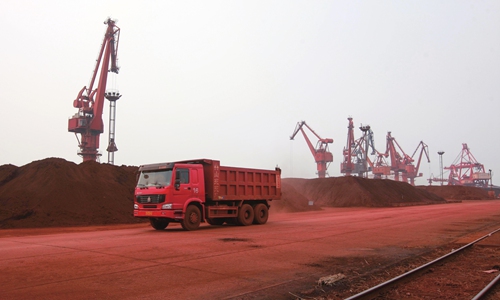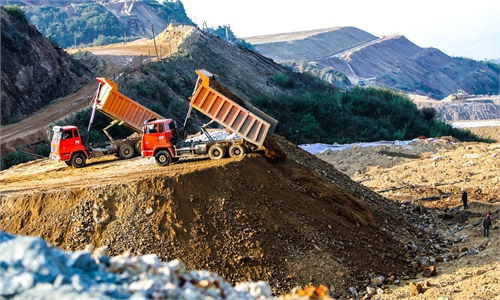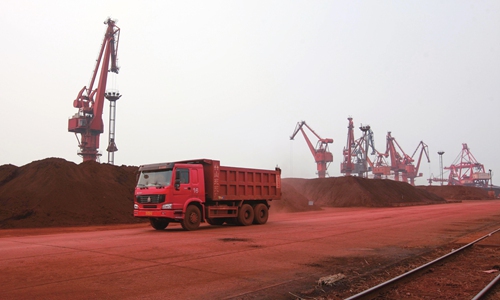SOURCE / INDUSTRIES
Rare-earth exports plunge in first 11 months: Chinese customs

A rare-earth mining operation in Baotou, North China's Inner Mongolia Autonomous Region Photo: cnsphoto
China's rare-earth exports plunged 26.7 percent year-on-year in the first 11 months of 2020, despite some improvement in November, according to customs data released on Monday. Experts said the decline reflected dropping demand as major export markets, including the US, were still mired in the COVID-19 pandemic.
According to China's General Administration of Customs, total exports of rare earths stood at 31,280 tons from January to November, down 26.7 percent. Exports in November alone were up 14.1 percent month-on-month to 2,611 tons.
The trend is generally in line with overseas demand fluctuations this year, Chen Zhanheng, deputy secretary-general of the Association of China Rare Earth Industry, told the Global Times on Monday. "As the world is still ravaged by the virus, demand has not recovered to the levels of the past years."
Chen noted that orders from the US, a major market for Chinese rare earth minerals, are down 40-50 percent this year, and the total export value this year is expected to remain low at $320 million.
China is the world's biggest supplier of rare earths, accounting for around 90 percent of the global market. The minerals are widely used in products such as military hardware, semiconductor microchips, and electric vehicles, and are often seen as a strategic resource.
As of December 1, China's new export control law took effect, giving the government broader power to control exports of certain products and technologies, including rare earths. Although the actual impact of the law on China's exports is yet to become clear, it has already sent ripples through certain industries.
In November, prices of Chinese-sourced rare earths surged. According to China's customs data, the average price jumped more than 14 percent from the previous month. According to media reports, prices of rare-earth minerals used in magnets - including neodymium, dysprosium and terbium - saw the sharpest gains in prices.
The law has helped fuel rapid gains of rare-earth metals used for making rare-earth permanent magnets. According to a manager at a large state-owned rare-earth magnet maker, based in Ganzhou, East China's Jiangxi Province, orders for China's rare-earth magnets have been rising since mid-year.



